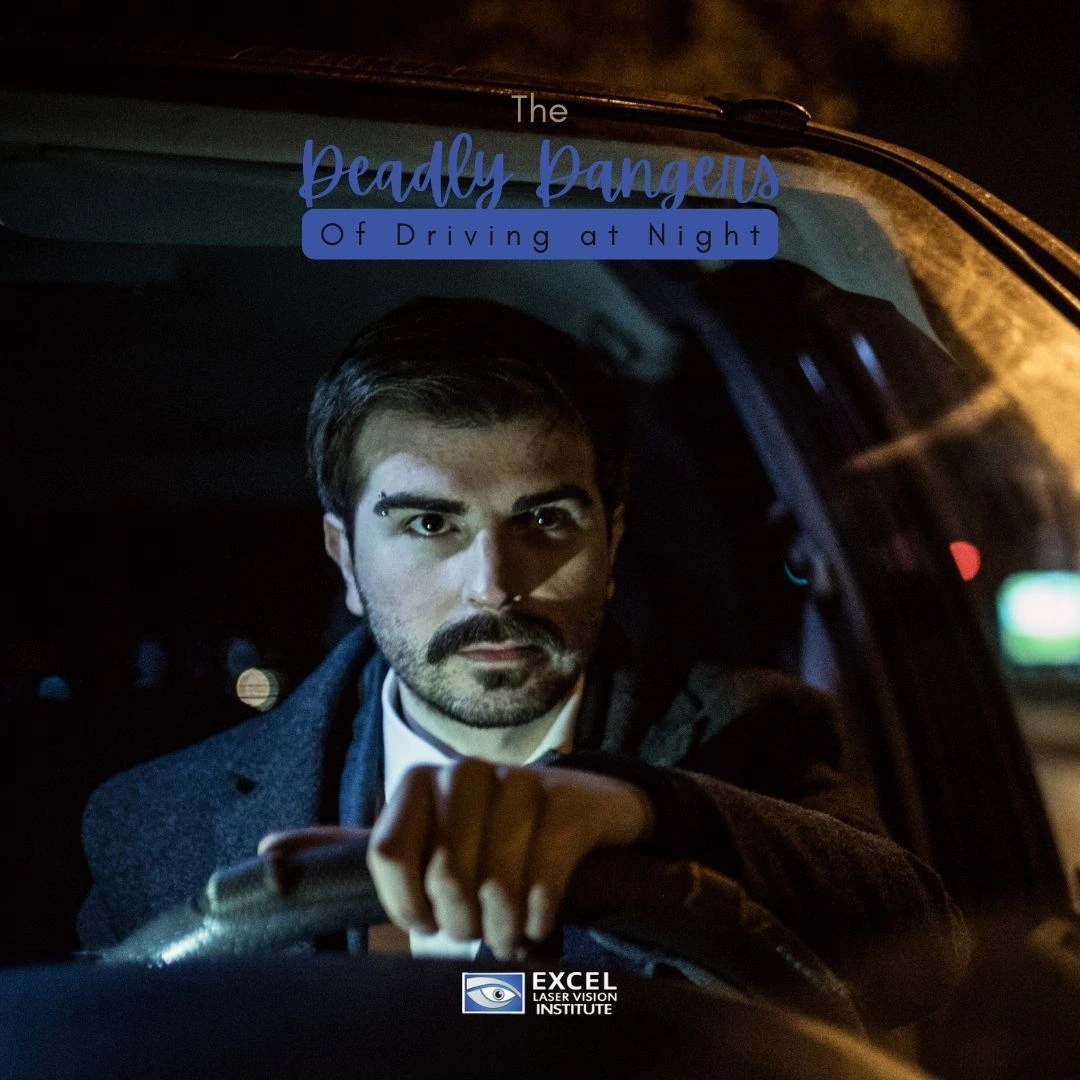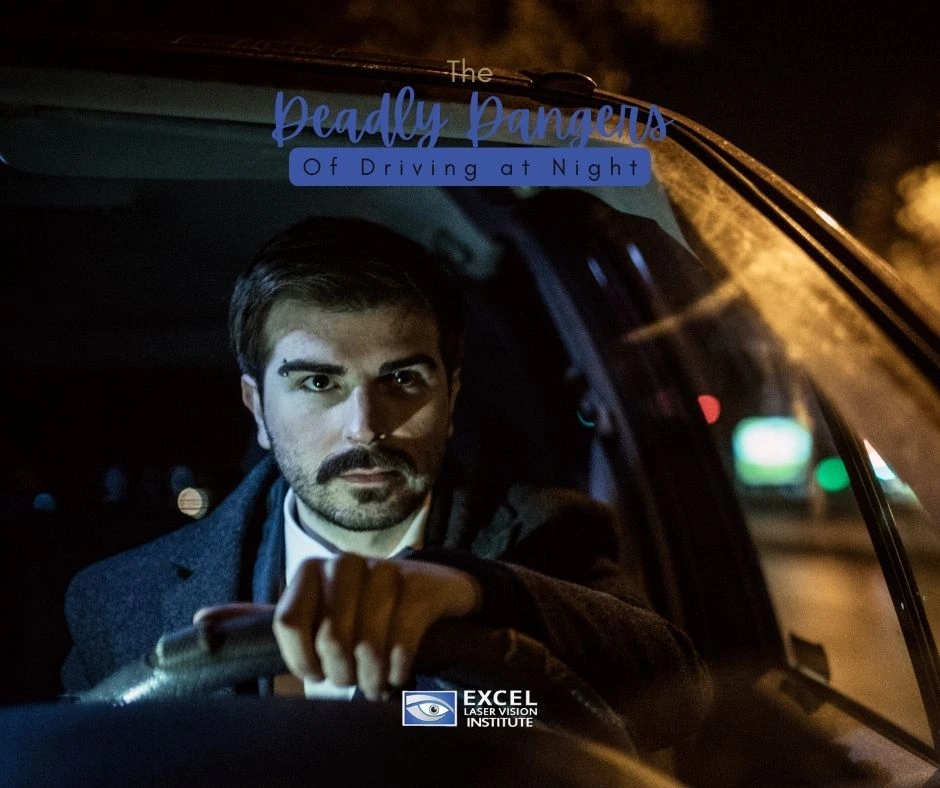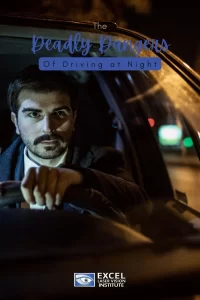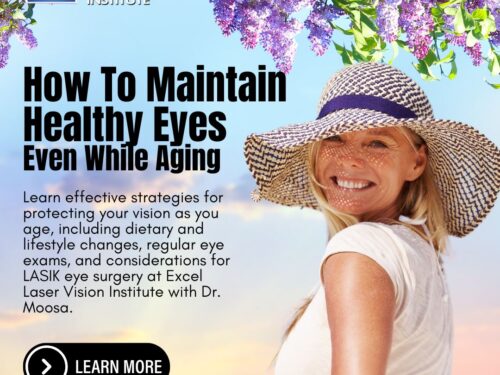
Did you know that most car accidents in the United States happen in the dead of night? In fact, according to the National Safety Council, 50% of fatal car accidents happen at night even though humans only spend a quarter of their lives driving at that time.
Below are the main reasons why driving at night is so dangerous.
You See Less at Night
Unless you’re a cat with enhanced vision in the dark, it’s extremely difficult to see things at night, even with perfect vision. Your headlights can only illuminate things to a certain extent—you’re still bound to miss certain road features like curves, potholes, sidewalks, and other things that can potentially harm you and your car.
Even worse, it’s a lot harder to see animals and people. How many horror stories have you heard about deer or moose suddenly appearing out of nowhere while you were driving at night? Not only can driving at night be dangerous to you, but it can also be dangerous for others—it’s a lose-lose situation for everybody.
You Have a Slower Reaction Time
Because your eyes see less at night, your body has less time to react to certain things. This is especially grimmer because people tend to drive faster at night—with less traffic around, people feel more confident about speeding.
This combination of slower reaction time and higher speed can be fatal. According to a study done by the National Highway Traffic Safety Administration, car accidents caused by speeding occur twice as much at night than during the day.
You’re Prone to Light-Related Issues
If you think that more light when night driving is a good thing, then think again! Light-related issues like glares, halos, and blurred vision can negatively impact your vision at night. It’s the same kind of pain and discomfort you feel when someone turns the lights on you while you’re sleeping—your eyes have a hard time adjusting to sudden, bright lights, and that can make all the difference between life and death.
You’re Sleepier at Night
If you’re driving late at night, chances are you’re lacking sleep. Being sleepy makes you less aware of your surroundings, making you more prone to accidents or poor driving decisions, or worse, falling asleep behind the wheel!
How to Practice Safe Driving at Night
Now that you’re aware of the risks of night driving, it’s time to learn how to mitigate them. Below are several effective ways to improve your safety when driving at night.
Avoid Driving at Night
The best way to avoid accidents caused by driving at night is, of course, to avoid driving at night altogether. As much as possible, you should squeeze in all of your outdoor activities in the daytime so you can be home safe and sound before the sun sets.
If you’re someone who can’t avoid driving at night due to things like night shifts or emergencies, then just make sure to take extra precautions. Reduce your driving speed. Drive in well-lit areas. Have a friend to keep you company so you won’t be tempted to fall asleep. All of these will up your safety considerably.
Keep Everything Clean
You’ve already got low visibility due to lack of light—don’t make it even lower with dirty cars!
Keep everything nice and squeaky clean, including your windshield, side mirrors, side windows, and rearview mirror. This way, you can readily see things whenever you need to. Remember to clean the inside part of your windows, too; many people forget that it gets just as dirty as the outside!
Also, keep your eyeglasses just as clean. Or better yet, invest in laser eye surgery costs so you’ll never have to worry about eyeglasses or contact lenses ever again.
Be Well-Rested
If you plan on driving at night, make sure you have a few hours of sleep beforehand at the very least, and never drive if you’ve been awake for more than 16 hours. If you find yourself yawning or struggling to keep your eyes open, then pull over for a nap or find the nearest accommodation as soon as possible and continue driving in the morning.
Sleep is an absolute must if you want to keep your mind alert on your journey.
Schedule Eye Exams with Your Doctor
Keep your eyes and eyesight in tip-top shape by making regular visits to your eye doctor. They’ll be able to assess any issues with your eyes, like astigmatism or cataracts that can affect your driving at night. They can also prescribe you medications and/or corrective measures to fix it.
Don’t forget to ask your doctor about anti-glare lenses, polarized glasses, or LASIK in Los Angeles!
Conclusion
There is no excuse for poor driving behavior and etiquette when driving at night. Not only are you a danger to yourself, but you’re also a danger to other people! Keep you and your loved ones safe at all times by driving extra carefully, keeping your car clean and fully functional, and being healthy (i.e., having your vision checked regularly and never driving with alcohol or drugs in your system).
If you’re a frequent night driver and are interested in learning more about improving your vision for driving at night, then might we recommend visiting your nearest Los Angeles LASIK surgeon, Dr. Ferzaad Moosa? He is an experienced surgeon with more than two decades of service under his belt. Schedule a free consultation with him today at (310) 905-8622 to see if LASIK can help keep you safer not only at night but the whole day!





